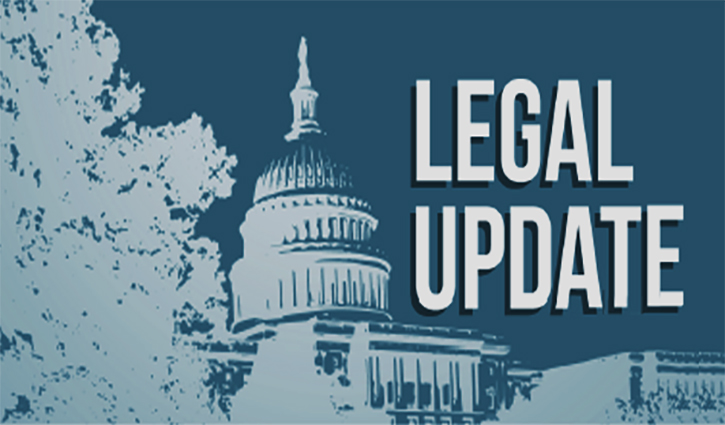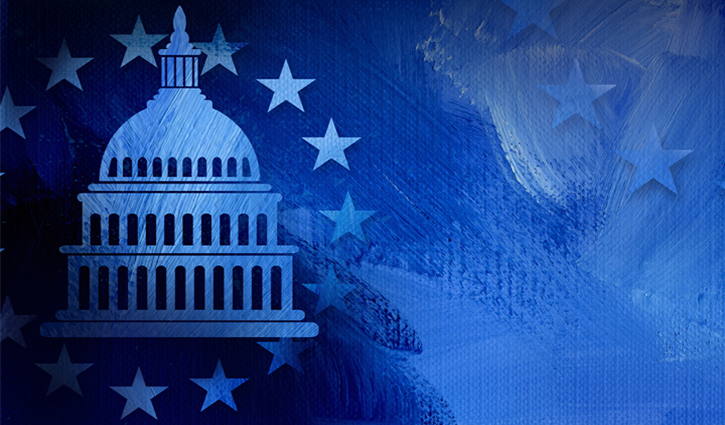On April 28, 2020, the Departments of Labor (DOL) and the Treasury (Departments) issued deadline relief to help employee benefit plans, plan participants and plan service providers impacted by the COVID-19 outbreak. Thereafter, on Feb. 26, 2021, DOL Disaster Relief Notice 2021-01 clarified the duration of this relief.
The deadlines were initially extended by disregarding an Outbreak Period from March 1, 2020, until 60 days after the announced end of the National Emergency (or such other date announced by the Departments). Under federal law, this period could not exceed one year, meaning that the relief was expected to expire on Feb. 28, 2021. However, the Notice allows the relief to extend beyond this date in some situations, while emphasizing that plan administrators should continue to make reasonable accommodations to prevent the loss of or delay in payment of benefits.
This Compliance Overview summarizes the continuation of relief guidance, including illustrative examples.
LINKS AND RESOURCES
- DOL’s Disaster Relief Notice 2021-01
- Departments’ final rule on the extension of timeframes
- DOL’s initial Disaster Relief Notice 2020-01
- COVID-19 FAQs for Participants and Beneficiaries from the DOL
Participant Extensions
Certain time frames are extended for health plan participants to:
- Request special enrollment under HIPAA;
- Elect COBRA continuation coverage, pay COBRA premiums and notify the plan of a COBRA qualifying event; and
- File benefit claims and appeals and request external review of denied claims.
ERISA Notices & Disclosures
The relief extended the time for plan officials to furnish benefit statements and other notices and disclosures required under ERISA, if good faith efforts are made to provide the documents as soon as administratively practicable.
[display_mode mode=”non-member-only”]Members login to access full article[/display_mode]
[display_mode mode=”member-only”]Extended Participant Deadlines
The initial relief provided participants in ERISA-covered plans with additional time to comply with certain deadlines affecting COBRA continuation coverage, special enrollment periods, claims for benefits, appeals of denied claims and external review of certain claims. Specifically, the relief extended:
- HIPAA time frames: The 30-day period (or 60-day period, if applicable) to request special enrollment.
- COBRA time frames: The 60-day period for qualified beneficiaries to elect COBRA coverage; the date for making COBRA premium payments (which is generally at least 45 days after the day of the initial COBRA election, and a grace period of at least 30 days for subsequent premium payments); and the date for individuals to notify the plan of a qualifying event or disability determination (in general, at least 60 days from the date of the event, loss of coverage, or disability determination).
- Claims procedures time frames: The date within which individuals may file a benefit claim under the plan’s claims procedure, and the date within which claimants may file an appeal of an adverse benefit determination under the plan’s claims procedure.
- External review process time frames: The date within which claimants may file a request for an external review after receipt of an adverse benefit determination or final internal adverse benefit determination, and the date within which a claimant may file information to perfect a request for external review upon a finding that the request was not complete.
Deadline Extension for ERISA Notices and Disclosures
In addition to the participant deadline relief above, extended time frames were provided for plan officials to furnish benefit statements and other notices and disclosures required under ERISA, so that plan sponsors have additional time to meet their obligations during the COVID-19 outbreak.
Under the initial relief, an employee benefit plan will not be in violation of ERISA for a failure to timely furnish a notice, disclosure or document that must be furnished during the Outbreak Period, if they act in good faith. This means the plan must furnish the documents as soon as administratively practicable under the circumstances. Good faith acts include use of electronic means of communicating with plan participants who the plan sponsor reasonably believes have effective access to electronic means of communication, including email, text messages and continuous access websites.
The DOL acknowledged in Notice 2021-01 that many plans have already returned to normal compliance procedures for furnishing notices and disclosures, and that notices and disclosures properly furnished without relying on the initial relief do not need to be refurnished. Similarly, to the extent the plan can demonstrate that a notice or disclosure was actually received, it would not need to be refurnished even if it was initially furnished in reliance on the prior relief.
Application of the One-year Limit
Notice 2021-01 clarifies that individuals and plans subject to the initial relief can extend the applicable deadlines until the earlier of:
- One year from the date they were first eligible for relief; or
- 60 days after the announced end of the National Emergency (the end of the Outbreak Period). On the applicable date, the time frames for individuals and plans with periods that were previously disregarded will resume. In no case will a disregarded period exceed one year.
Examples
The Notice provides the following examples to illustrate the duration of the relief:
- Example 1: If a qualified beneficiary would have been required to make a COBRA election by March 1, 2020, that requirement is delayed until Feb. 28, 2021. This date is the earlier of one year from March 1, 2020, or the end of the Outbreak Period (which remains ongoing).
- Example 2: If a qualified beneficiary would have been required to make a COBRA election by March 1, 2021, that election requirement is delayed until the earlier of one year from that date (that is, March 1, 2022) or the end of the Outbreak Period.
- Example 3: If a plan would have been required to furnish a notice or disclosure by March 1, 2020, the relief would end with respect to that notice or disclosure on Feb. 28, 2021. The responsible plan fiduciary would be required to ensure that the notice or disclosure was furnished on or before March 1, 2021.
In all of these examples, the delay for actions required or permitted that is provided by the Notices does not exceed one year.
Reasonable Accommodations
The DOL recognizes that plan participants and beneficiaries may continue to encounter problems when the relief is no longer available, due to the one-year limit. Accordingly, plan fiduciaries should make reasonable accommodations to prevent the loss of or undue delay in payment of benefits in these cases and should take steps to minimize the possibility of individuals losing benefits because of a failure to comply with pre-established time frames.
- The administrator or other fiduciary should consider affirmatively sending a notice regarding the end of the relief period when individuals are at risk of losing coverage.
- Plan disclosures issued prior to or during the pandemic may need to be reissued or amended if those disclosures failed to provide accurate information regarding the time in which participants and beneficiaries were required to take action (for example, COBRA election notices and claims procedure notices).
- In the case of ERISA group health plans, plans should consider ways to ensure that participants and beneficiaries who are losing coverage under their group health plans are made aware of other coverage options that may be available to them, including the opportunity to obtain coverage through the Exchange in their state.
The DOL also acknowledges that full and timely compliance with ERISA’s disclosure and claims processing requirements by plans and service providers may not always be possible. In the case of fiduciaries that have acted in good faith and with reasonable diligence under the circumstances, the DOL’s approach to enforcement will be marked by an emphasis on compliance assistance, and includes grace periods and other relief.
Application to Non-federal Governmental Plans
While the extension of time frames included in the guidance is not mandatory for non-federal governmental plans, plan sponsors of non-federal governmental plans are encouraged by the applicable federal agencies to provide similar relief to participants and beneficiaries. The Notice states that the Department of the Treasury, IRS, and Health and Human Services have advised the DOL that they concur with the guidance regarding the continuation of relief, citing to a prior bulletin issued by the Centers for Medicare & Medicaid Services (CMS). In the bulletin, which was issued in response to the initial relief, CMS stated its plans to adopt a temporary policy of relaxed enforcement to extend similar time frames otherwise applicable to non-federal governmental group health plans, and their participants and beneficiaries, under applicable provisions of the Public Health Service Act (PHS Act).
Download PDF [/display_mode]












